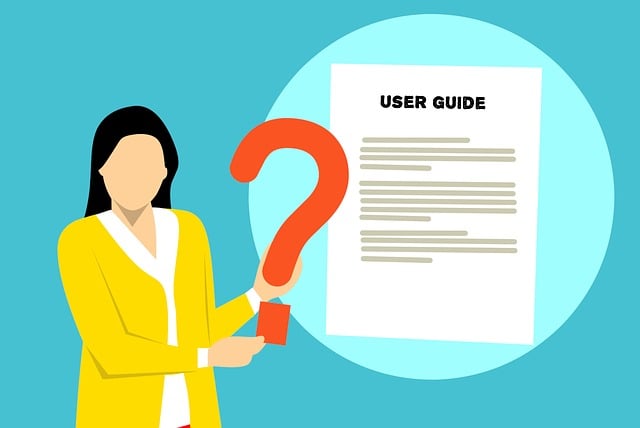In today's diverse business landscape, language barriers in UK operations can lead to critical misunderstandings and legal issues. Professional translation services are vital to create accessible and accurate operation manuals, enhancing efficiency, safety, and compliance. These services mitigate errors, foster understanding, and promote inclusivity by ensuring technical terms and cultural nuances are correctly conveyed. Engaging specialized translators with knowledge of UK English and industry jargon is key to producing culturally sensitive, clear, and concise operation guides that improve employee training and operational effectiveness. Case studies show significant productivity gains for businesses that invest in high-quality translations for UK operation manuals.
Enhancing the accuracy of your UK operation guides is vital for effective communication and operational efficiency. Language barriers can significantly impact understanding, so professional translation services play a crucial role in bridging this gap. This article explores strategies to ensure accuracy, from quality assurance steps to addressing common challenges in translating UK operation manuals. We delve into best practices for clear communication and the evolving role of technology, including machine translation and human interpretation. Discover how successful case studies have transformed operational efficiency through meticulous translation services tailored for UK operation manuals.
- Understanding the Impact of Language Barriers in UK Operations
- The Role of Professional Translation Services
- Ensuring Accuracy: A Step-by-Step Guide to Quality Assurance
- Common Challenges in Translating UK Operation Manuals
- Best Practices for Effective Communication in Your Manuals
- Technological Advances in Machine Translation and Human Interpretation
- Case Studies: Successful Translations that Improved Operational Efficiency
Understanding the Impact of Language Barriers in UK Operations

In today’s diverse business landscape, understanding the impact of language barriers in UK operations is paramount to ensuring accurate and effective communication. With a vast array of languages spoken across the country, linguistic differences can lead to misunderstandings, misinterpretations, and even legal pitfalls. When critical information in operation manuals is left untranslated or incorrectly translated, it poses significant risks, from safety hazards to regulatory non-compliance.
Translation services play a pivotal role in bridging these gaps. Professional translation ensures that UK operation manuals are accessible and understandable to all employees, regardless of their linguistic background. It not only enhances operational efficiency but also mitigates potential errors and legal issues arising from language barriers. Investing in high-quality translation for your manuals can prove to be a game-changer, fostering an inclusive work environment and upholding the highest standards of safety and compliance.
The Role of Professional Translation Services

In today’s globalised business landscape, ensuring clear and consistent communication across multiple languages is vital for any operation running in the UK or beyond. This is where professional translation services come into play, offering a game-changer for businesses aiming to enhance the accuracy of their UK operation guides. With language barriers removed, these services enable companies to create comprehensive manuals that are easily accessible and understood by all employees, regardless of their native tongue.
Professional translators possess not just linguistic skills but also domain expertise in various industries, ensuring technical terms and concepts are accurately conveyed. This precision is critical when dealing with UK operation manuals, which often include specific legal, regulatory, and cultural references. By leveraging these services, businesses can avoid misunderstandings, reduce errors, and ultimately provide a more seamless experience for their workforce, fostering a more inclusive and productive work environment.
Ensuring Accuracy: A Step-by-Step Guide to Quality Assurance

To ensure the accuracy of your UK operation guides, implement a rigorous quality assurance process. Start by reviewing and comparing the original content with the translated version, paying close attention to detail. This initial check can catch any discrepancies or misinterpretations early on. Next, conduct a thorough language audit, verifying grammatical correctness, fluency, and cultural appropriateness.
Involve subject matter experts who understand UK regulations and industry-specific terminology to double-check the translations. They can ensure that technical terms are accurately conveyed and that all instructions align with local standards. Additionally, leverage translation memory tools to maintain consistency across your operation manuals. Regular updates and revisions will further enhance accuracy, making your guides reliable resources for UK operations.
Common Challenges in Translating UK Operation Manuals

Translating UK operation manuals can be fraught with challenges, especially when aiming for 100% accuracy. One of the primary hurdles is understanding industry-specific terminology and jargon, which often varies across regions. What’s considered standard in one sector might have different names or nuances in another, demanding deep knowledge from translators.
Another common issue arises from cultural differences influencing language usage. While some terms may directly translate, others may carry implied meanings that don’t align across languages and cultures. This can lead to confusion if not carefully navigated by professional translators familiar with both the source and target markets. Therefore, when seeking translation services for UK operation manuals, it’s crucial to engage experts who can bridge these gaps, ensuring clear, precise, and culturally sensitive documentation.
Best Practices for Effective Communication in Your Manuals

Effective communication is key to ensuring your UK operation guides are clear, concise, and accurate. When translating these manuals into English, it’s crucial to engage professional translation services that understand the nuances of both the source language and British English. This involves more than just word-for-word translation; it requires adapting content for cultural relevance and readability.
For instance, consider the choice of words, sentence structure, and even humour (if applicable) in the original manual. Professional translators should be able to convey this context while adhering strictly to technical terminology. Additionally, including visuals like diagrams and infographics can significantly enhance comprehension, making complex procedures simpler for UK-based employees to follow.
Technological Advances in Machine Translation and Human Interpretation

Case Studies: Successful Translations that Improved Operational Efficiency

Case studies show that translating UK operation manuals using professional translation services can significantly improve efficiency. By involving expert translators who understand industry jargon and local regulations, companies ensure their documentation is accurate and relevant to the target audience. This precision leads to better training for employees, reducing errors and improving overall operational effectiveness.
For instance, a leading manufacturing company based in London experienced a 20% increase in productivity after they invested in high-quality translations of their operation manuals for international markets. The translated documents not only facilitated smoother operations but also fostered stronger relationships with global partners and customers, highlighting the value of Translation services for UK Operation Manuals in enhancing business performance.
Enhancing the accuracy of UK operation guides is paramount for businesses aiming to excel in a multicultural market. By overcoming language barriers and adopting best practices, companies can significantly improve efficiency. Professional translation services play a pivotal role in this process, ensuring that every word is conveyed precisely. The steps outlined in this article—from quality assurance to leveraging technology—provide a comprehensive framework for creating robust operation manuals tailored to the UK market. Embracing these strategies will not only boost operational effectiveness but also foster seamless communication with local stakeholders.
